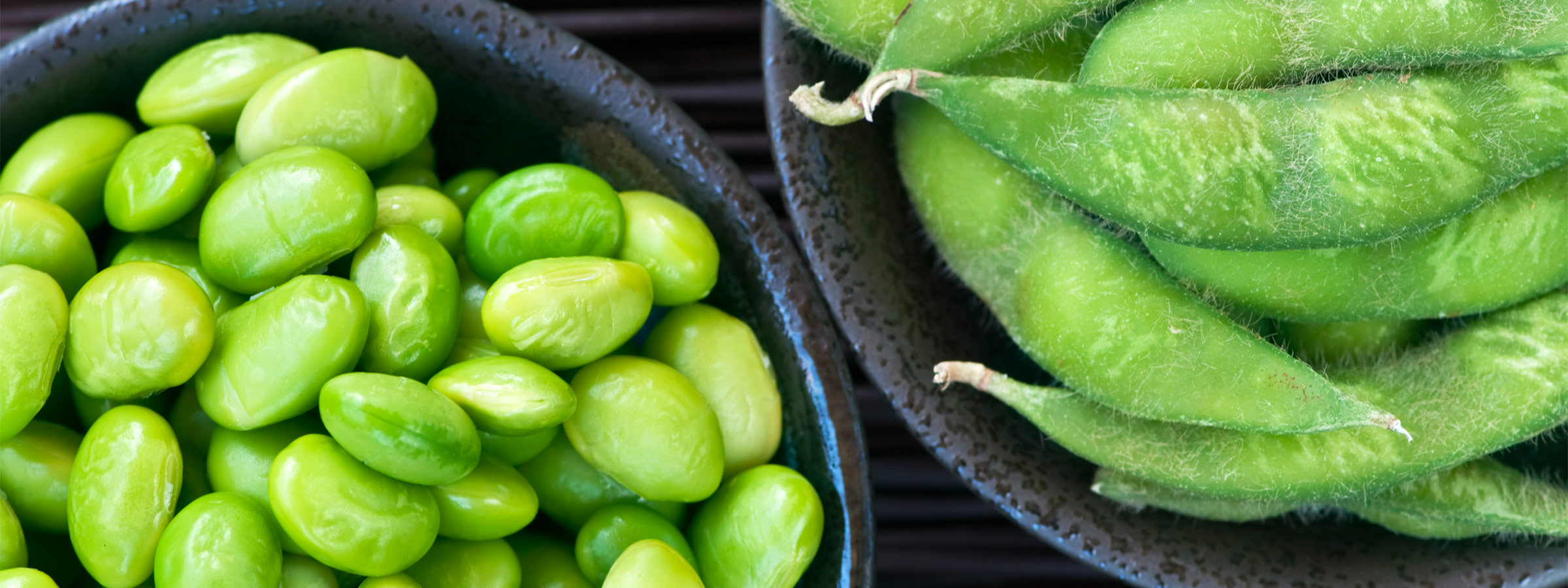Use coupon code SATIVA with your purchase of $30 or more for a free†
Vitamin C & Oryza Sativa Gentle ScrubSoy Products FAQs

What are soybeans?
Soybeans are beans, part of the legume food category. Eastern cultures have traditionally consumed diets high in soy content, with corresponding and significant health benefits compared to Western cultures, which consume diets higher in animal protein and fats. U.S. Dietary Guidelines recommend that we consume 3 cups of legumes per week as part of a healthy diet, but few Americans meet that goal.
What are the benefits of consuming soy foods?
Research has shown soy products to be an excellent addition to most diets. Legumes have traditionally been a part of healthy diets around the world due to their fiber, protein, lipid, vitamin, and phytoestrogen (plant estrogens, or isoflavones) content. Unlike other legumes, soybean oil contains 7-8% of the essential omega-3 fatty acid, alpha-linolenic acid, which is fairly rare in plant foods. Soy has one of the highest protein contents of all legumes, is over 90% digestible, and supplies complete protein in the form of essential amino acids. Soy protein also has a gentler effect on kidney function than animal proteins. Mineral absorption from soybeans is better than one would expect for a plant food since much of its iron is in the form of well-absorbed ferritin and its calcium absorbs about as well as that in milk.
Although research is ongoing, scientists believe the isoflavone content of natural soy may be responsible for some of its health benefits. We do not add isoflavones to any of our soy products; they are naturally occurring. Estimating the isoflavone content of any soy product is fairly simple. Generally speaking, there are about 2 mg of soy isoflavones per gram of Soy Protein. Take the protein content of a soy product from NOW® and multiply it by two, then convert to milligrams. For example, if Soy Milk powder contains 6 grams of protein per serving, multiply 6 times 2 = 12, then convert to milligrams for an estimated total of 12 mg of isoflavones per serving.
As evidence of soy’s potential benefits, the FDA has approved a statement to be used in the labeling of qualified soy products that states, “Diets low in saturated fat and cholesterol that include 25 grams of soy protein a day may reduce the risk of heart disease”.
Aren’t soy foods controversial?
Although soy foods have been the topic of controversy, modern science has determined that they are a healthy dietary component and do not need to be routinely avoided by breast cancer patients, just as other beans and legumes also containing phytoestrogens can be safely consumed. Concerns about their possible effect on thyroid function were largely resolved some 50 years ago when it was demonstrated that iodine deficiency, in conjunction with soy formula, could result in goiters that did not occur when sufficient iodine was present in the body. Since then, soy formulas have been fortified with iodine to prevent goiters; for adults, taking a multivitamin or eating a varied diet sufficient in iodine (which an infant obviously can’t do) also will prevent that problem.
What soy foods does NOW offer?
We offer a number of organic and non-GMO soy and soy-derived products including Organic Soy Milk Powder, Organic Textured Soy Granules, Non-GMO Soy Isoflavones vegetarian capsules, Non-GMO Soy Protein Isolate, Non-GMO Lecithin (granules or softgels) and Non-GMO Vitamin E softgels and liquid.
References (accessed February 27, 2014):











